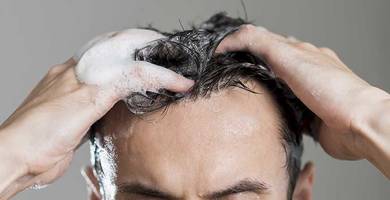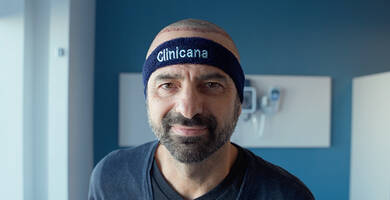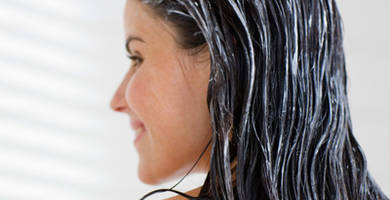Ringworm on scalp: what is the treatment against scalp yeast?
By Prof. Dr. Soner Tatlidede 2021-08-06

Ringworm on scalp is a highly contagious fungal infection that can appear anywhere on the body and cause irritation, scabbing, and peeling; when fungi appear on scalp, this infection is known as ringworm, Tinea capitis, or dermatophytosis, and it can even cause hair loss: therefore, it is very important to identify the symptoms and detect it in the early stages, before it spreads and causes irreversible damage.
Sometimes, people who ask us about the cost of hair implants in our clinic, have suffered or suffer currently from yeast on scalp; so, they are very interested in knowing if hair loss due to scalp fungus is irreversible, and what kinds of treatments do exist. In this post, we will try to answer all the questions that arise about this infection, what problems causes, and what solutions do exist.
What is scalp yeast infection?
Dermatophytosis, also called simply as Tinea, is a fungal infection caused by a type of fungi called dermatophytes (exactly, those of the Microsporum and Trichophyton genus), which spreads through the epidermis feeding on keratin; therefore - as studies show - in addition to affecting skin, Tinea can also cause damage to hair or nails. When infection occurs on the scalp, we call it Tinea capitis or ringworm on scalp.
It is a very contagious infection that is transmitted through direct contact with the skin of an infected person or animal (dogs and cats, especially puppies, are usually carriers of Tinea, but also cattle, horses, etc). We may become infected also if we touch an object or surface that has previously been touched by a person or animal infected with the fungus.
Ringworm on scalp: symptoms
If we search on the Internet for scalp fungus pictures, we will find out that usual symptoms of this infection begin with the appearance of small itchy pimples, which become inflamed and redden until they cause flaking and hair loss: hair falls out in round-shaped patches, which are the areas where the fungus has spread.
These round-shaped areas caused by this itchy scalp fungus are also painful if we touch them, and hair becomes brittle. If the infection is not controlled and continues to progress, pimples can grow into blisters and ooze pus; and if fungal infection spreads from head to face or neck, lymph nodes may also become infected causing symptoms such as fever, vomiting or headaches.
Normally, hair loss caused by ringworm is temporary, and hair recovers by itself once the appropriate treatment has managed to eliminate the infection. However, in certain cases, alopecia can be irreversible due to the damage caused to follicles by the infection.
What causes scalp fungus?
As we already mentioned before, fungal infections are transmitted due to direct contact with the skin of infected people or animals, or simply by touching an object or surface that has been in contact with an infected person: towels, sheets, pillows, combs, the back of a seat... you may become infected even just by walking barefoot. Once infected, it is easy for the fungi to spread to head, because soon or later you will touch your hair.
In order to understand what are the causes of fungi infections, it is important to underline that we do not need to come into contact with farm animals, or people with poor hygiene: a simple sporadic contact with our pet or with a trusted person who has become infected - and maybe doesn’t know because symptoms have not yet manifested - can cause us to contract the infection.
In addition, although fungal infection is more common in childhood and puberty, it also occurs in adults – besides, children can infect their parents - especially among people who have few body defences. And now... let's see how to get rid of scalp fungus.
What is the treatment for ringworm on scalp?
So, what kills fungus on scalp? Actually, poor hygiene or humidity help the fungal infection to spread; therefore, when it comes to understand what cures ringworm on the scalp, several precautions must be taken, such as keeping hair clean and dry (just to avoid any fungus on scalp from wet hair), and of course avoiding all contact with people, animals or objects if we suspect that they may be infected with Tinea.
With a good hygiene, and if we have good body defences and no nutritional deficiencies, we can help to stop the fungal infection from spreading. But if it has already spread, it is essential to start a scalp fungus treatment as soon as possible. A medical expert will indicate how to treat scalp fungus; but usually, topical lotions are used combined with oral antifungal drugs (griseofulvin, itraconazole...). Treatment may include some corticosteroid or antibiotic for ringworm on scalp, in the most severe cases.
Doctor may also advise the use of a scalp fungus shampoo; however, using just an antifungal shampoo for scalp fungus cannot eliminate the infection, if not combined with other treatments. On the other hand, we strongly discourage resorting to home remedies for scalp fungus treatment: the real effectiveness of home remedies for scalp fungus has not been proven, and resorting to them may cause the infection to spread even further.
Although in most cases ringworm does not cause irreversible hair loss, in the most severe cases a painful inflammation can appear causing permanent hair loss by scarring alopecia. In these cases, the only way to recover the lost hair is through a hair transplant, but only once the infection has completely disappeared.
Our advice if ringworm on scalp is detected, is always resort to a specialist who makes a diagnosis on time and prescribes a treatment under medical supervision. Remember that Clinicana is the best hair transplant clinic in Turkey, and that we are specialised in all hair treatments: request your free consultation, and ask us for a free, no obligation estimate. You can easily recover your hair!!








